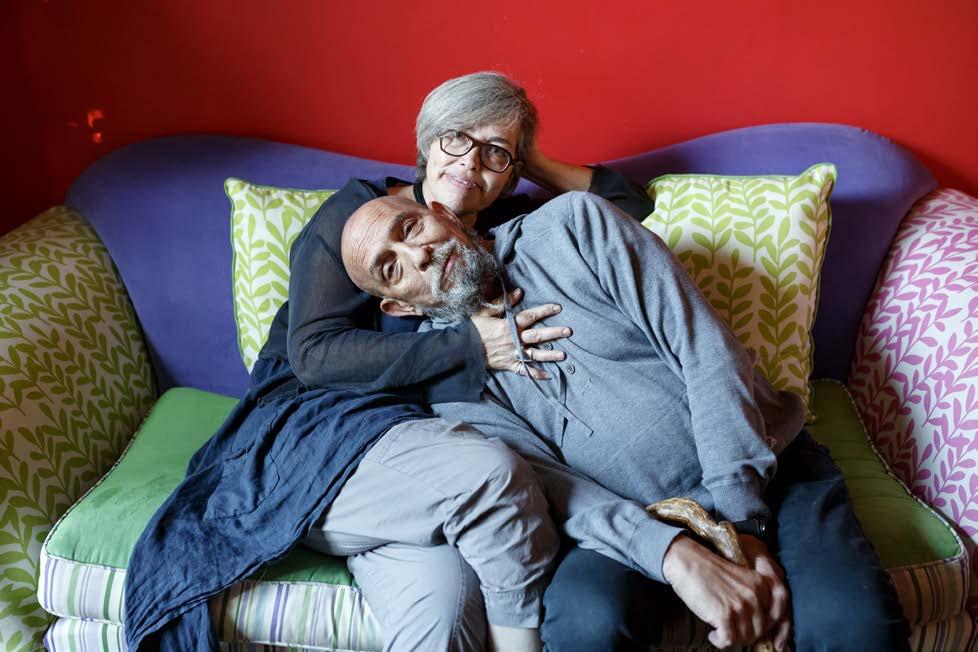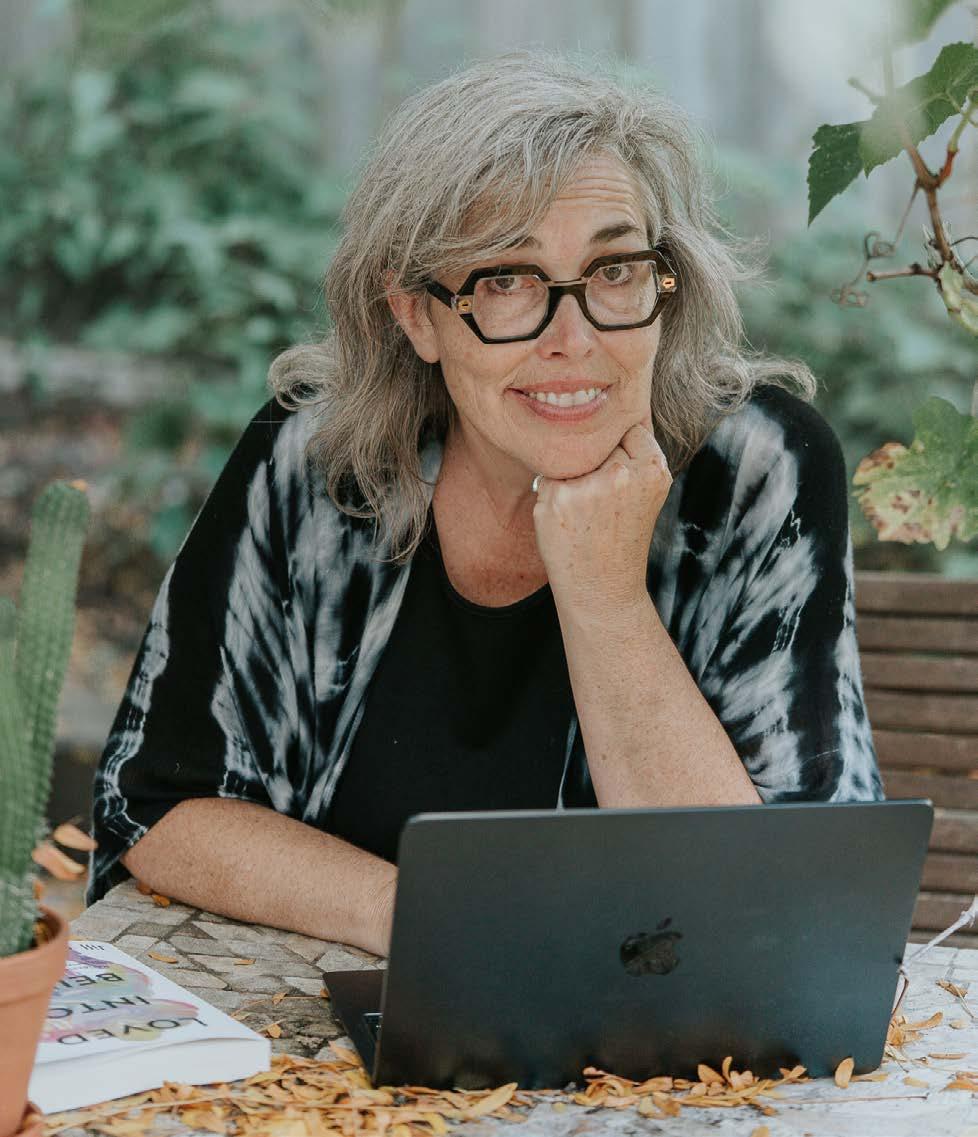
6 minute read
A personal reflection on Medical Assistance in Dying in Canada
■ Medical Assistance in Dying (MAID) became legal in Canada in June of 2016. As a result, Canada’s Criminal Code exempts doctors and nurse practitioners who provide, or help to provide, MAID. (The BAO does not regulate MAID, of course. Its magazine includes feature articles of public interest.)
By Celia Chandler
On Nov. 19, 2018, my husband, Jack, consented to a medically assisted death. Jack’s cancer had progressed, diminishing his quality of life; he was grateful he could prevent further suffering and die on his own terms, as he had lived. I am profoundly grateful, too.
Jack and I first discussed Medical Assistance in Dying (MAID) in 2014. One morning our dog awakened in a pool of urine after rapidly declining in the weeks prior. We felt sad as we left the vet, but grateful we’d facilitated the best death we could. How unfair that in 1993, the Supreme Court denied Sue Rodriquez the right to hasten her death, cementing Canada’s anti-MAID position. We couldn’t give each other what we gave our Boxer.
We were both healthy at the time.
A year later, Canada was poised to hear another Supreme Court decision about euthanasia. Kay Carter, who suffered from a degenerative disease, started her legal fight when she was denied a physician-assisted death in Canada. She ended her life in Switzerland in 2012, but her daughter continued her case, hoping to overturn the Rodriguez ruling.
The February 2015 Carter decision did just that, calling criminalization of physician-assisted suicide unconstitutional, saying competent adults with grievous and irremediable medical conditions should have the right to ask a doctor to help them die. The court gave government a year to develop legislation.
Diagnosed
Two months later, Jack, my partner of seven years, was diagnosed with Stage 3 lung cancer. He was treated aggressively with chemo and radiation through the first half of 2016, arresting the cancer’s advance.
In June 2016, Parliament set conditions for MAID, and safeguards against abuse. Jack and I didn’t dwell on it, but we were pleased some Canadians would have a choice to control the end of their lives.
We cautiously resumed normal life. Through 2017 Jack felt good although his cigarette addiction cast a smokey cloud over our future.
By early 2018, though, Jack’s health was failing. In April they discovered the cause — cancer had metastasized to the brain. More radiation shrunk the tumour but by summer, he spoke in a whisper and choked at every meal. Mid-September 2018, scans showed cancer in his spinal fluid: eight to 16 weeks, they said. Death didn’t frighten Jack, but a fatal choke did. MAID moved to the centre of his radar.
If Jack’s voice had allowed, he’d have echoed the 2013 pre-death plea of Toronto physician, Donald Low. “I wish [the people who oppose medically assisted death] could live in my body for 24 hours and I think they would change that opinion.”
We followed news about Audrey Parker, the 57-year-old who opted for MAID early to avoid losing capacity to consent. Audrey’s Amendment removed this requirement three years later but not soon enough for Jack whose capacity was also slipping.
On October 16, at his request, I made a call about MAID. Within hours, MAID provider, Dr. Ed Weiss called me back. Two days later, Ed assessed Jack and deemed him eligible. Two neighbours witnessed Jack signing the MAID application, beginning the 10-day cooling period then required by the law. On October 19, we had a hospital bed delivered and met with the funeral director at home to plan a celebration of Jack’s life. Everything happened fast.
Signed application
Jack had signed a MAID application but still considered more tests and treatment for symptoms. Jack, who’d talked his whole life about euthanasia, wasn’t fully resolved.
On October 24, a second doctor confirmed eligibility: Jack had intolerable suffering, a grievous and irremediable condition with death reasonably foreseeable, and, most importantly, the mental capacity to opt for MAID.
As capacity worsened though, I feared the window would close. Every few days I asked if he was ready. He shook his head, not yet. Sometimes he was so muddled he said I could make the decision when it was time.
Back then, MAID was very new. Outside my close circle, I felt on shaky ground talking about it, especially if his slip from reality would deem him ineligible. I continued providing exhausting and stressful at-home care to a man hanging on to independence and hope. Jack finally saw that further testing and treatment were not worth the effort of getting to the hospital. The penny dropped: it was MAID or a frightening cancer death.
Then he asked me if I’d be OK.With great effort, I said: “Of course.”
On November 15, Jack awoke and said, “I’m ready.” Then he asked me if I’d be OK.
With great effort, I said: “Of course.” Death was inevitable. Ending his suffering was better for us both.
I began planning despite worrying whether he’d pass the capacity test.
On MAID day morning, Jack slept on and off in his basement hospital bed surrounded by his smoking room, beer tap, 52-inch flat screen, and toilet. I Netflixed beside him. In his awake moments we cuddled, discussing how lucky we’d been to meet. He sipped a smoothie and ate a little Jell-O — it’s what had become a standard day.
Family gathered
Then family gathered. He said the things to each that I’d hoped he could say but wasn’t sure he’d be able to. We toasted life (Jack, double G&T; the rest of us, Prosecco).
At 5:45, with the doctor scheduled to arrive at six, Jack nodded off. I panicked: had the gin made this all for naught?
When Dr. Weiss arrived, Jack awoke thankfully. Ed greeted Jack warmly and respectfully and introduced himself to everyone else. He asked for a moment alone with Jack but recalled us quickly — all systems were go.
I sat on the bed with Jack’s legs across mine. Others stood bedside. Ed explained the three meds: one to sedate, one to slow everything down, and one to end his life. It would take 10 minutes.
Grinning, Jack whispered, “So are we doing this thing or what?”
As the first med entered his blood, Jack pulled me close so my right ear was over his heart, his left arm around my back. I could see Jack’s right arm as Ed flushed the IV line and changed the meds. It never flinched. Whatever ambivalence he’d had was gone.

I felt Jack’s breathing stop, and then his heart. He was no longer suffering.
■ Celia Chandler is a former lawyer turned writer whose articles have appeared in the Toronto Star and on her website, celiachandler.com.





